Toddler 'turned grey and passed out' after drinking Slush Puppie
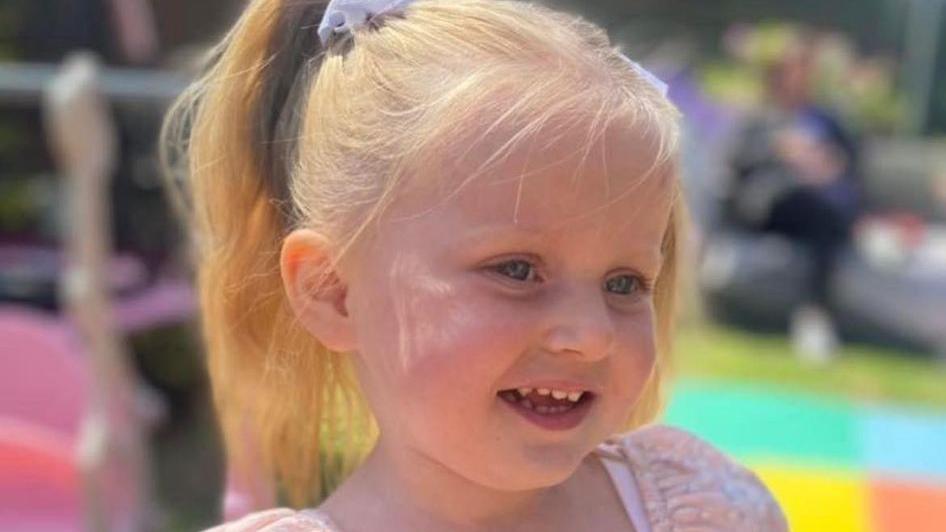
Arla Agnew had a serious reaction after drinking a Slush Puppie
- Published
A two-year-old girl fell unconscious and had to be hospitalised after drinking a Slush Puppie.
Arla Agnew "turned grey" when her blood sugars plummeted after only half a cup of the icy drink at a friend’s house on Saturday.
Her mother Carys, from Stranraer, said doctors believed this was caused by glycerol, a chemical compound used in slushy drinks as it prevents liquids from freezing solid.
Food Standards Scotland (FSS) says that drinks with glycerol are not suitable for children under the age of four, external due to their potential to cause side-effects such as headaches and sickness, particularly when consumed in excess.
It also says that very high levels of exposure – typically when several slushies are drunk by a child in a short space of time – glycerol intoxication could cause shock, hypoglycaemia (low blood sugar) and loss of consciousness.
The agency says that sales of slush ice drinks containing glycerol should be accompanied by a written warning that the product contains glycerol and is not recommended for under-fours - but it is not a legal requirement to do so.
Carys, her mother and Arla had gone to a friend’s house on Saturday. The group decided to make use of the friend’s new Slush Puppie machine from B&M.
Arla had only a small cup of the drink but Carys noticed something was wrong when the normally “hyper” two-year-old became tired and asked to be carried home.
“Her whole face was grey,” she said. “It was like she wasn’t falling asleep – it was like she was passing out and waking up again.”
With Arla’s condition showing no sign of improvement, Carys decided to take her to A&E at Galloway Community Hospital.
She began to fear for her daughter’s life when doctors could not immediately tell her what was wrong.
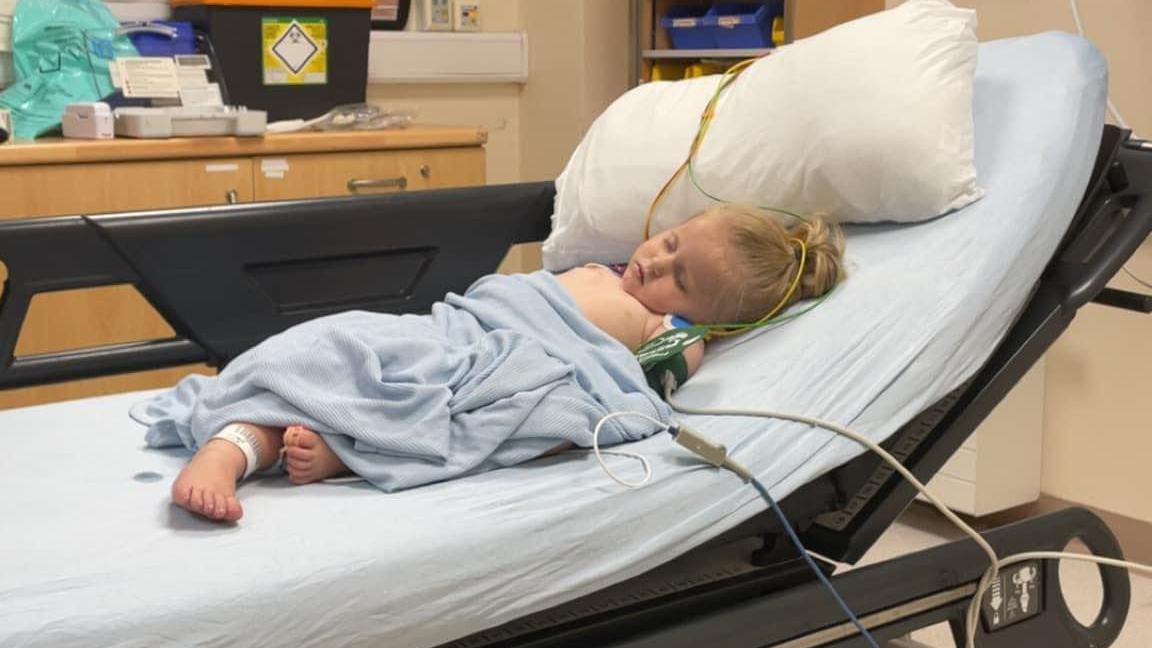
Arla remained unconscious in hospital while doctors ran tests
Tests revealed that Arla’s blood sugar had dropped to an abnormally low level – a condition called hypoglycaemia, which has to be treated very quickly to stop it getting worse.
The family could not understand it as the toddler had eaten a number of sugary foods earlier that day.
“They were so quick getting all the machines into her,” said Carys. “They pricked her heel and took blood from her arms, and she did nothing, didn't flinch – that’s when I knew something wasn’t right with her.
“I was absolute having it, I couldn’t stop crying. My brother and sister couldn’t even look at her because of all the machines attached to her.
“Then a doctor came through said ‘I know what it might be’ – he said ‘I think it’s the Slush Puppie’. He’d spoken to the poison unit and found that glycerol wasn’t for under fours.”
Arla had to be rushed to Dumfries and Galloway Royal Infirmary, where medical staff also told the family that glycerol in the Slush Puppie was the likely cause of her condition.
They were able to treat the toddler quickly and before long she was sitting up, drinking juice and speaking to friends on Facetime.
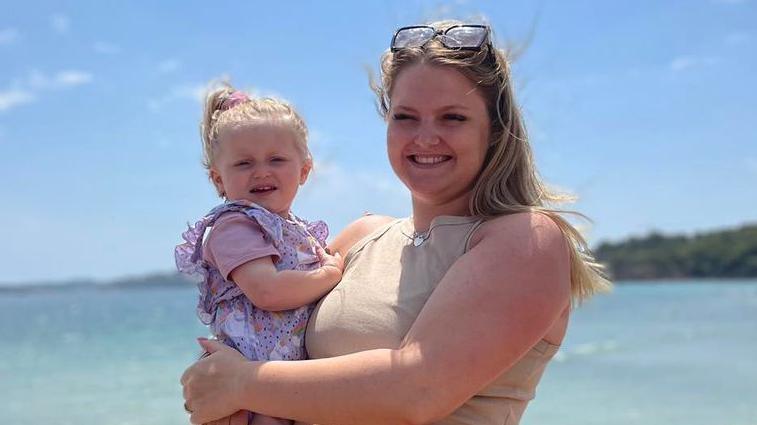
Carys, pictured with Arla, said she feared for her daughter's life
The Food Standards Agency (FSA) introduced new guidance in August, external last year, saying slush-ice drinks containing glycerol should not be given to children under four – though this guidance is voluntary.
It followed a risk assessment that found that children below this age could suffer headaches and sickness caused by exposure to the chemical.
If several products are drunk by a child in a short space of time, the FSA said it could cause shock, hypoglycaemia and loss of consciousness.
There have been two other cases of children being hospitalised in Scotland because of glycerol intoxication as far as the FSA is aware – one in 2021 and one in 2022.
Carys’s mother Stacey checked the packaging on the Slush Puppie and found there was no warning about the product being unsuitable for young children.
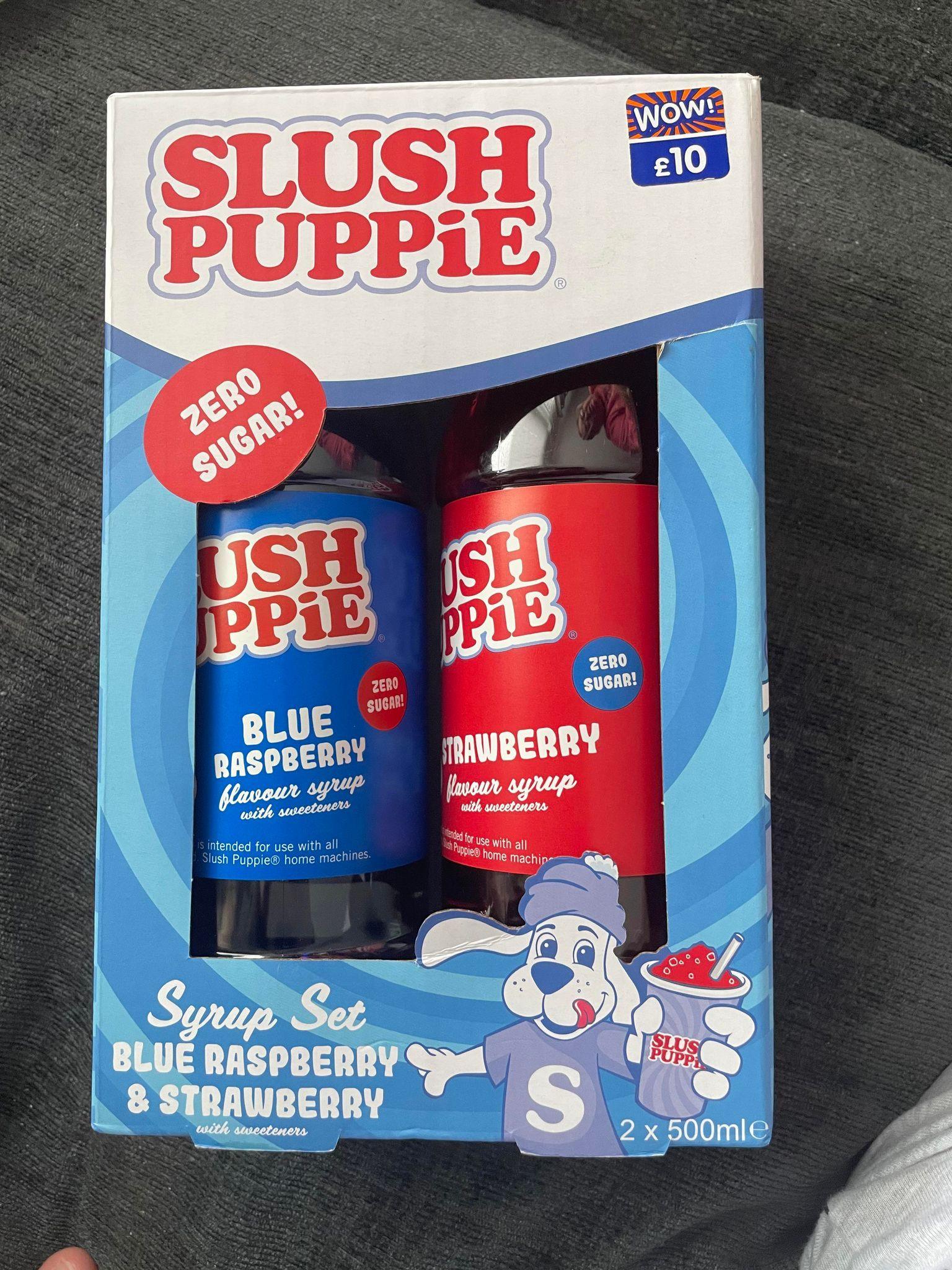
The family could find no warning on the packaging
B&M said they had inspected current stock and "confirmed that the packaging adheres to the Food Standard Agency's guidance".
The BBC has contacted Slush Puppie for comment.
“This just scares me,” said Carys. “That’s why we’re speaking about it - to make sure it doesn’t happen to anyone else.
“The doctor said if it had been 20 minutes later it could have been totally different – I took that to mean she could have died.”
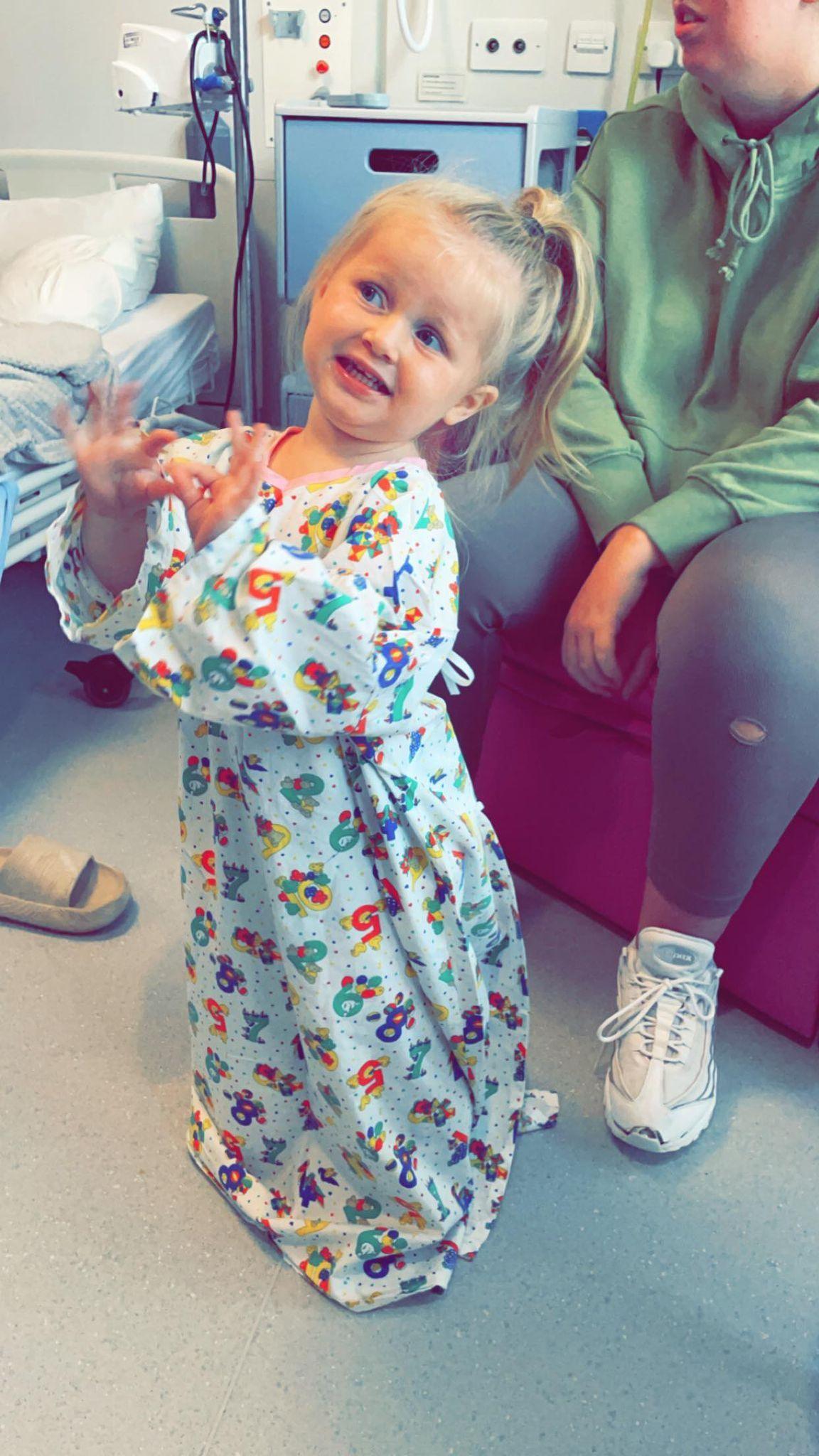
Arla made a swift recovery once doctors realised what had happened
After spending a night in hospital, Arla is now back to her usual energetic self - though Carys is wary of allowing her to have any more slushy drinks.
She says she may use an alternative like diluting juice if Arla is around older children using the machine again.
Carys added: “She’s hyper 24-7 - she runs about from the minute she gets up until the minute she gets to her bed.
“I’ve definitely got my hands full – and I’m glad about that.”
The FSA said work was taking place with the trade to discuss how to improve consumer information on which slush ice products contain glycerol.
It said there would be an emphasis on which products are not recommended for younger children.
A spokesperson added: "In the meantime, parents and carers can check the ingredients list of slush ice products and look for the presence of glycerine/glycerol, or the additive number E422.
"If it is listed, the product is not recommended for children of four years of age and under."